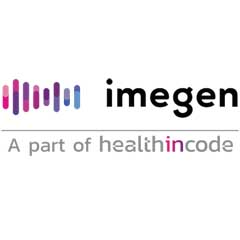
Nutrition and genetic test
Understand how your body reacts to food
Did you know that everything you eat has a positive or negative impact on your body? If you want to prevent certain discomforts and illnesses, create good lifestyle habits, and achieve a diet that is in line with your body and meets the needs of your organism based on your genetics, you must perform this analysis.
Nutrition and genetic test
Price: 325.00€
Price with discount: 230,00€
Service Description:
|
|
Based on your genetics, analyze your body's response to different nutrients such as proteins, fats, carbohydrates, etc., for your cardiovascular protection, body weight, predisposition to intolerances. |
|
|
Receive an analysis of your genetics related to cholesterol and triglycerides, omega 3, saturated fats, unsaturated fats, carbohydrates, proteins, metabolism, caffeine, intake timing, satiety, gluten intolerance, lactose intolerance, and also mutations related to the profile of response to physical exercise. |
|
|
Results available in 12 business days. |
|
|
It is done through a blood sample. |
|
|
Includes a consultation with a nutritional coach expert in genetics about which foods benefit your body in fat loss, food intolerances, allergies caused by food, and many more essential factors for your health. |
Testimonials
Rod Paley

Graeme McKenzie

Daniel Crigan

Our partner labs, nationally and internationally certified




We put at your disposal more than 150 extraction points, the largest network in Spain.
Why take this test?
- To understand the reason why you have trouble controlling your weight and size.
- Understand your predisposition to intolerances or suffering from certain discomforts and illnesses related to food.
- Improve your energy levels.
- Have a diet that is in line with your body and meets the needs of your organism.
- Gain health and vitality in your daily life.
What does the result tell me?
-
The test will tell you your genetic predisposition to burn fat, gain or lose weight, burn fat through exercise, cholesterol levels, Omega 3 needs, predisposition to intolerances or certain diseases by analyzing the following parameters or genes:
CELSR2, LDLR, PCSK9, TRIB1, APOA2, IL6, CRP, TNF, APOA2, FABP2, FTO, TCF7L2, MC4R, FADS1, PPARG, NOS3, IL6, CRP, TNF, ADRB2, FTO, ACE, PPARG, KCTD10, TCF7L2, FABP2, ADCY8, FTO, LEPR, UCP1, TMEM18, MC4R, BDNF, FTO, LEPR, ADRB2, MC4R, PPARG, CLOCK, PER2, FTO, BDNF, TCF7L2, TASR38, CD36, MC4R, HLA (rs2395182 - rs7775228 - rs4713586 - rs2187668 - rs7454108), MCM6 (rs4988235 - rs182549), CYP1A2.
This way, you can create a 100% personalized diet for the good health of your organism and the actions that must be taken to begin good lifestyle habits.
How is this test performed?
-
Doing this test is very simple:
- You buy your voucher at medmesafe on a discount.
- You attend the laboratory of your choice during opening hours.
- You will have a blood sample taken (fasting is not necessary).
- You will be able to download your results 12 business days later from your private space on medmesafe.
How the test works
-
Purchase your service online with a discount to get a voucher.
-
Go to an extraction centre with your voucher.
-
One of our partner labs makes the analysis.
-
You receive the results by email.
You can help by sharing this information with your contacts or doctor










